There’s nothing wrong with setting rules and expectations—kids need structure, guidance, and consistency.
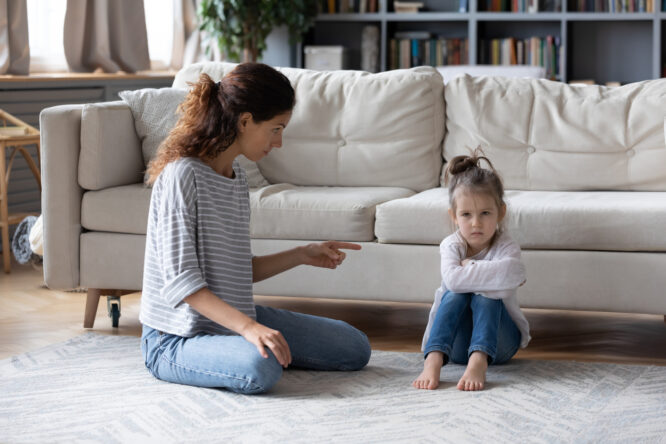
That being said, there’s a line between being strict and being toxic, and it often comes down to the intention behind the rules, the emotional tone, and how a child is treated when they make mistakes. A strict parent can still create a loving, secure environment. A toxic parent, on the other hand, often creates confusion, fear, and lasting emotional scars. Here’s how to tell the difference between the two.
1. Strict parents enforce rules, but toxic parents use control as a weapon.
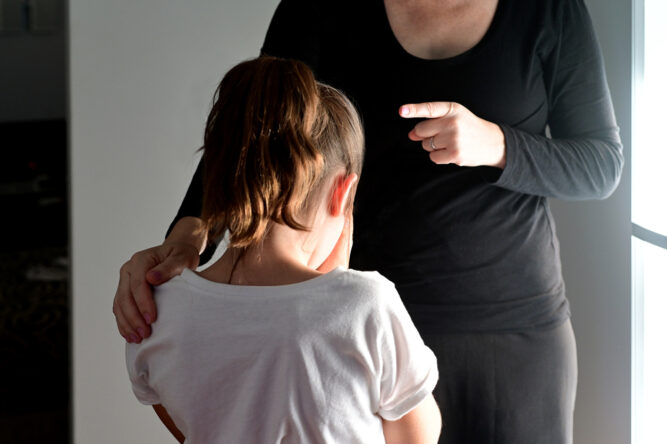
Strict parents may have clear boundaries and expect them to be followed, but they typically explain the reasoning behind those rules. Toxic parents enforce rules to maintain power, often using fear and manipulation rather than guidance. The difference lies in the tone. Structure can be helpful and grounding. But when rules feel like a trap or are constantly changing to suit the parent’s mood, it stops being discipline and starts being control.
2. Strict parenting teaches accountability, while toxic parenting shames.

Strict parents correct behaviour without attacking character. They want their children to learn from their mistakes, not internalise guilt or feel worthless. Toxic parents, however, may resort to humiliation or harsh labels when a child messes up. This can lead to deep-rooted shame that lingers into adulthood. Children raised this way often believe they are inherently bad, rather than understanding they just made a mistake.
3. Strict parents expect respect, but toxic parents demand obedience at any cost.
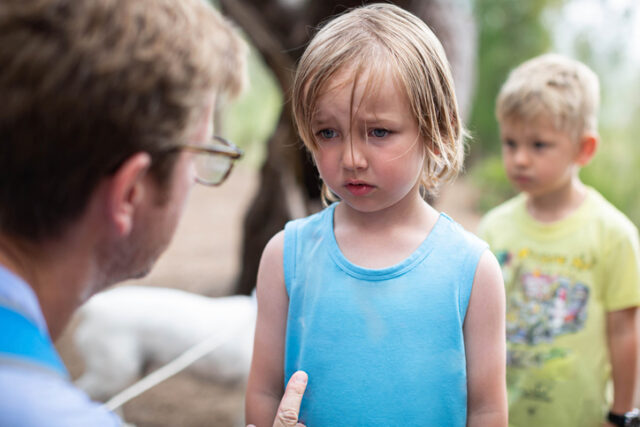
Respect and obedience aren’t the same thing. A strict parent might expect children to listen, but they’re also willing to hear them out. Toxic parents see any questioning as disrespect and often punish it harshly. That kind of environment teaches fear, not respect. Over time, kids may learn to hide parts of themselves or stop speaking up altogether just to avoid backlash.
4. Strict parents create consistency, while toxic parents create chaos.
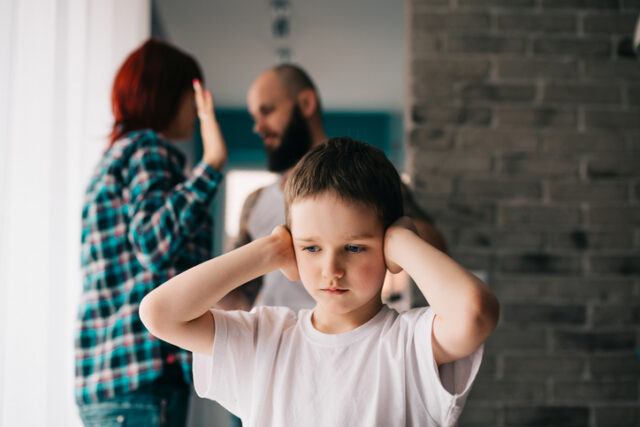
Consistency helps children feel safe. When a strict parent says something, they mean it—and the child learns to trust their word. Toxic parents, however, may flip between moods and punishments without warning, keeping children on edge. The unpredictability is emotionally exhausting. It teaches kids to always be on alert, which can carry into their adult relationships and sense of self-worth.
5. Strict parents discipline; toxic parents punish.
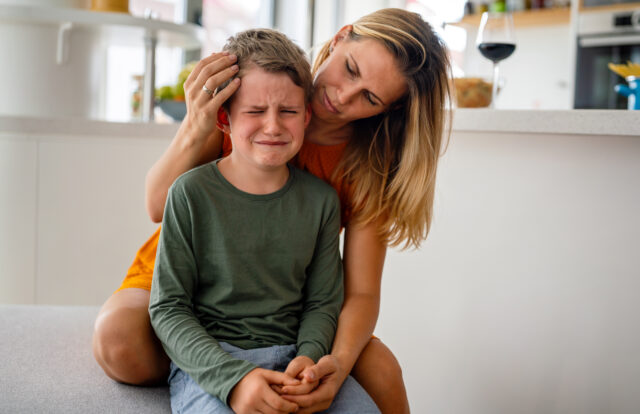
There’s a big difference between consequences and punishment. Strict parents use discipline to teach, while toxic parents often punish out of anger or frustration, sometimes in ways that are excessive or emotionally harmful. Discipline is about growth. Punishment from a toxic place is about control, and it can leave lasting emotional wounds that affect how someone views themselves long after childhood.
6. Strict parents allow room for emotion, but toxic parents shut it down.

Even if they expect good behaviour, strict parents usually understand that emotions are natural. Toxic parents may see crying, frustration, or even excitement as inconvenient and respond by belittling or ignoring those feelings. This sends the message that emotions are dangerous or shameful. As time goes on, kids raised this way may struggle to identify or express their feelings in healthy ways.
7. Strict parenting encourages independence, but toxic parenting creates fear.
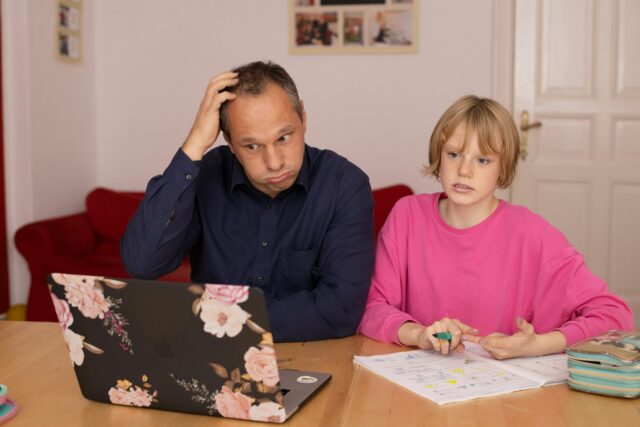 Source: Unsplash
Source: Unsplash Strict parents may push their kids to be responsible and self-reliant. Toxic parents often control their children so tightly that they grow up afraid to make choices or try new things. The difference shows up in adulthood. Kids from strict but loving homes often grow into confident adults. Kids from toxic homes may doubt themselves constantly or fear failure to the point of paralysis.
8. Strict parents earn trust, but toxic parents demand it blindly.

A strict parent might say, “I want you to be honest with me, even if it’s hard.” A toxic parent might say, “If you don’t trust me, you’re ungrateful,” while giving no reason for that trust to be earned. Healthy trust is built, not forced. Kids should feel safe enough to be honest, even when it’s uncomfortable. If trust is only expected when the parent is in control, it’s not trust—it’s fear.
9. Strict parents accept individuality, while toxic parents demand conformity.

Strict parents may have high expectations, but they still allow space for personality, interests, and preferences. Toxic parents often expect their children to mirror their values, behaviour, or life choices exactly. When a child doesn’t fit the mould, toxic parents might react with rejection, pressure, or manipulation. This can lead to deep identity struggles later in life, especially around autonomy and self-expression.
10. Strict parents listen, even when they disagree; toxic parents shut conversations down.

You can be firm and still hear your child out. Strict parents might stand by a rule, but they’ll usually explain their reasoning and let the child talk. Toxic parents often dismiss any attempt at dialogue as “talking back.” This can teach kids that their voice doesn’t matter. As adults, they may find it hard to speak up or advocate for themselves, even when it counts.
11. Strict parents apologise when they’re wrong. Toxic parents never do.

Being strict doesn’t mean being perfect. A good parent owns their mistakes and models accountability. Toxic parents rarely, if ever, apologise, even when they know they’ve hurt their child. This teaches children that love comes with conditions, and that power means never having to admit fault. Over time, it can destroy the trust that’s essential to any healthy relationship.
12. Strict parents raise kids who understand limits; toxic parents raise kids who fear them.

Boundaries can be healthy when they’re clear, respectful, and consistent. Kids raised by strict parents often grow up with a strong sense of right and wrong—and the freedom to make their own choices within safe limits. However, kids raised in toxic environments may grow up afraid to test boundaries at all. They may struggle with people-pleasing or never feel quite safe in relationships, even when there’s no threat.
13. Strict parents correct behaviour, while toxic parents attack character.

There’s a big difference between saying, “That choice wasn’t okay” and saying, “You’re a bad kid.” Strict parents separate the behaviour from the person. Toxic parents often blur that line, using harsh words that stick for years. That criticism cuts deep. It creates wounds around identity and self-worth that are hard to shake off, even well into adulthood.
14. Strict parenting still includes love and warmth, but toxic parenting feels cold and conditional.

Even with rules and expectations, strict parents show affection. They praise effort, hug often, and make their love known. Toxic parents may withhold affection as a form of control or only show it when the child behaves “correctly.” Children raised this way often feel like they have to earn love or approval. That belief doesn’t go away easily—it can shape how they navigate every close relationship later in life.




